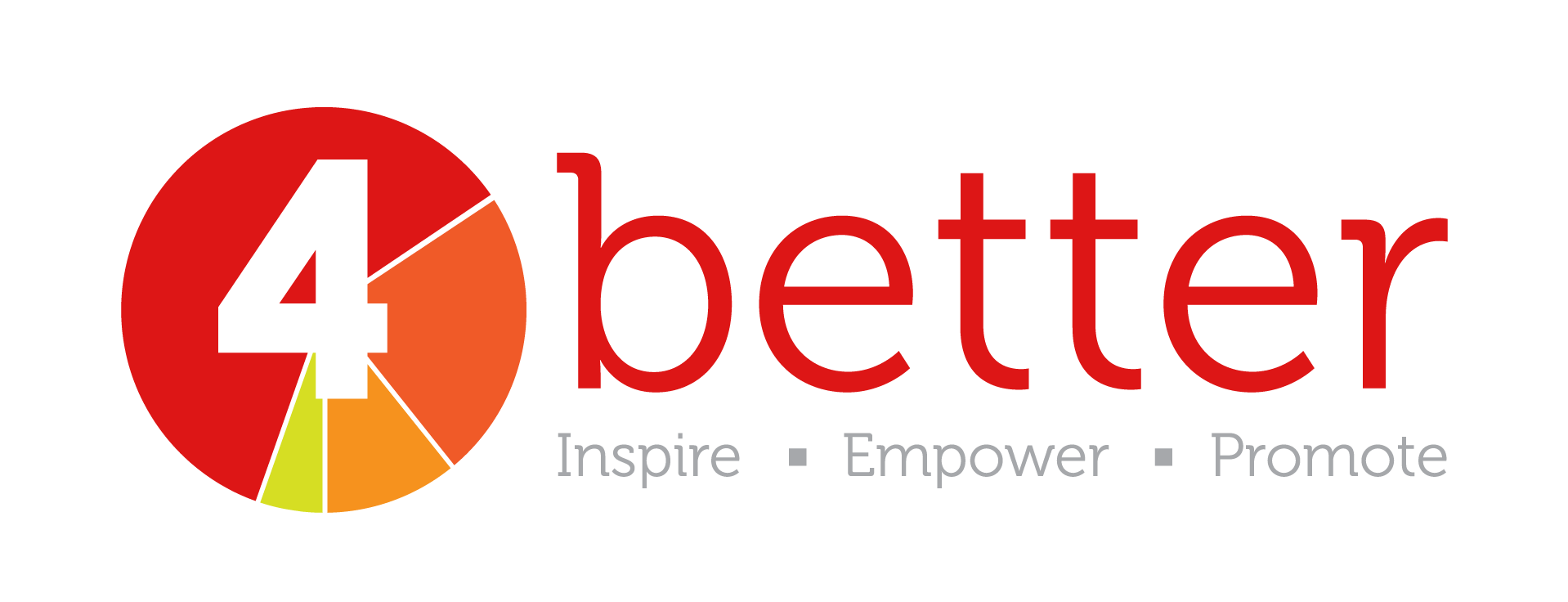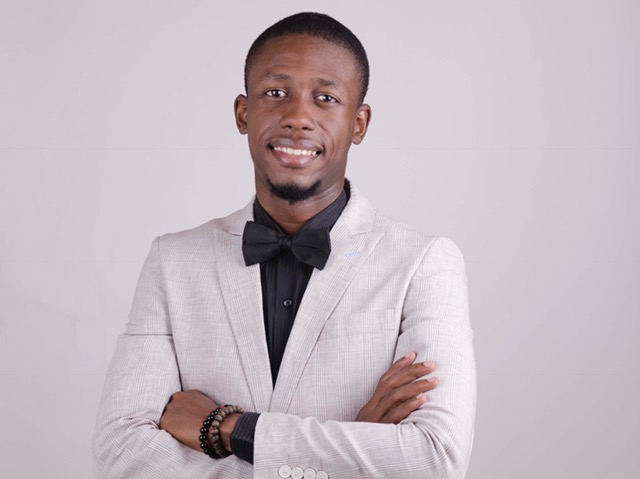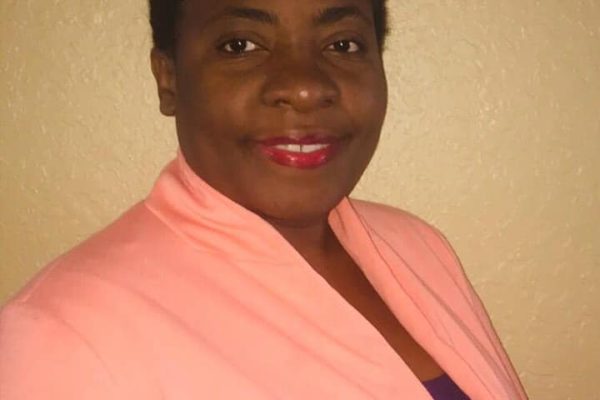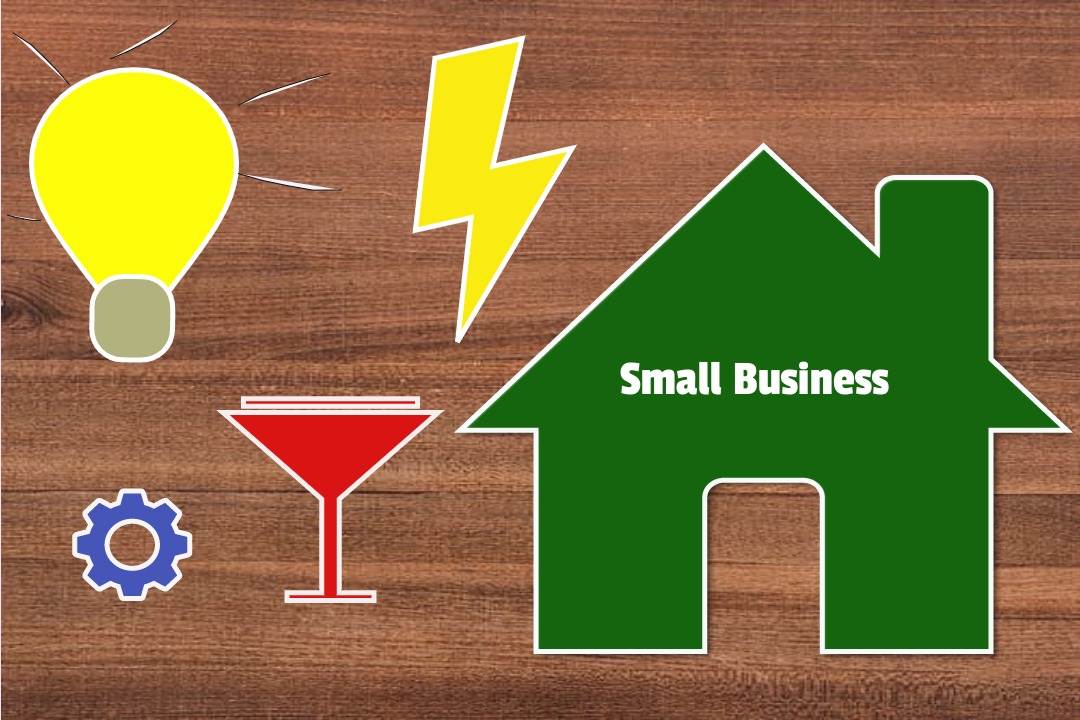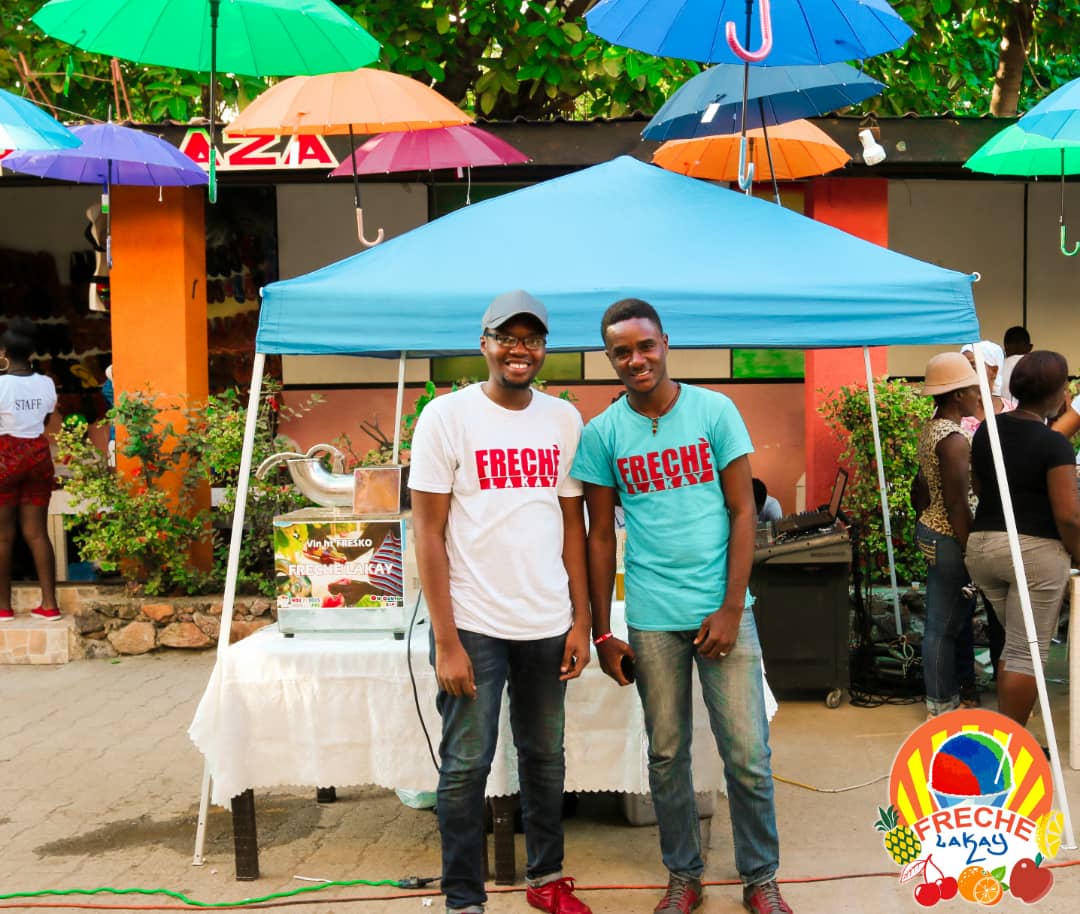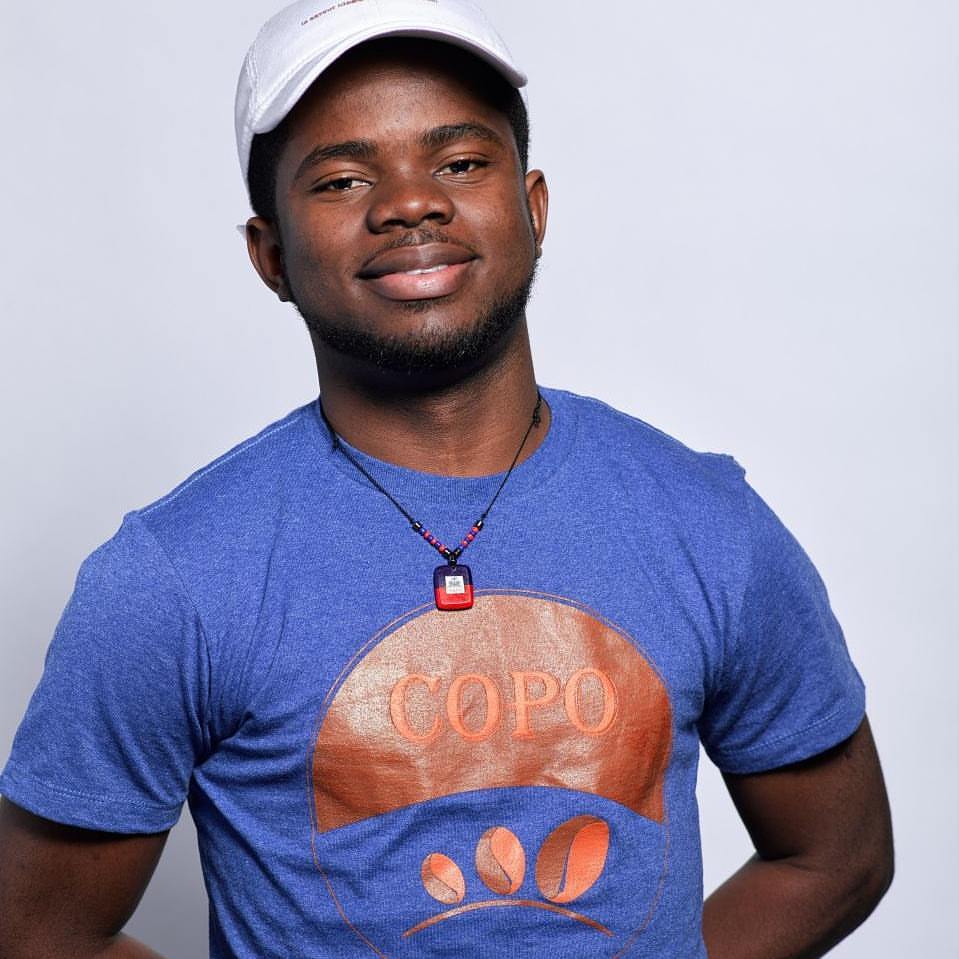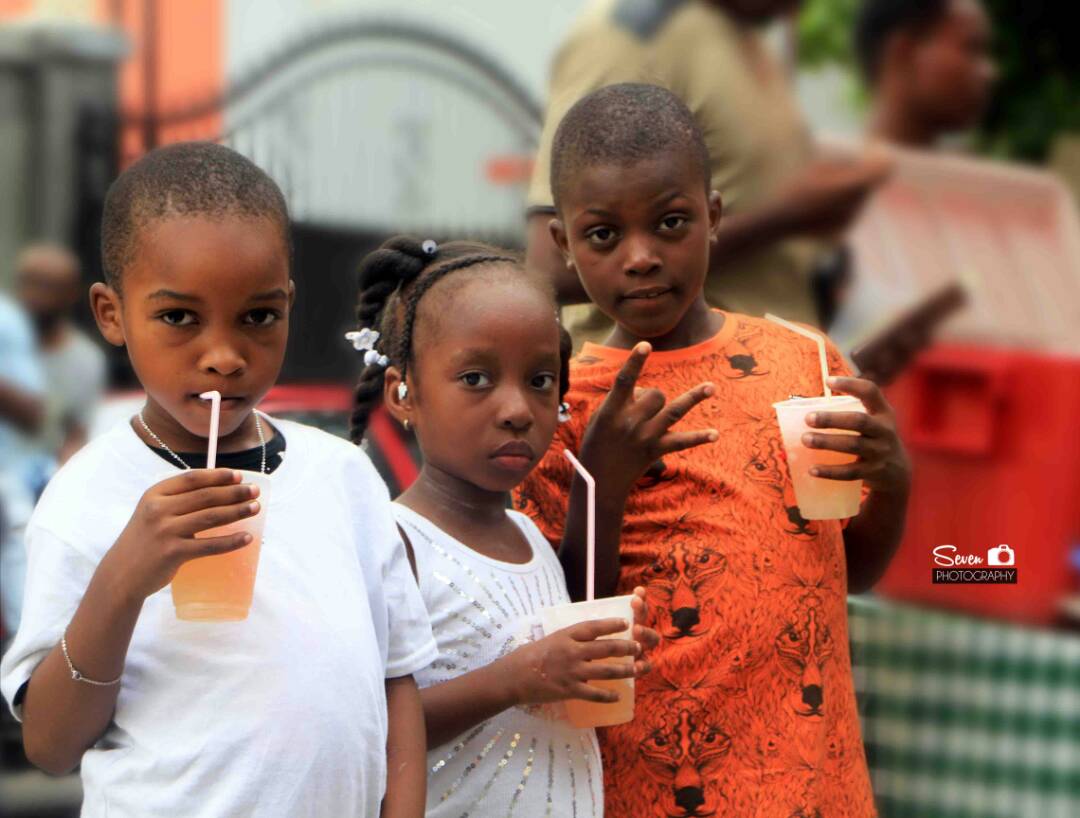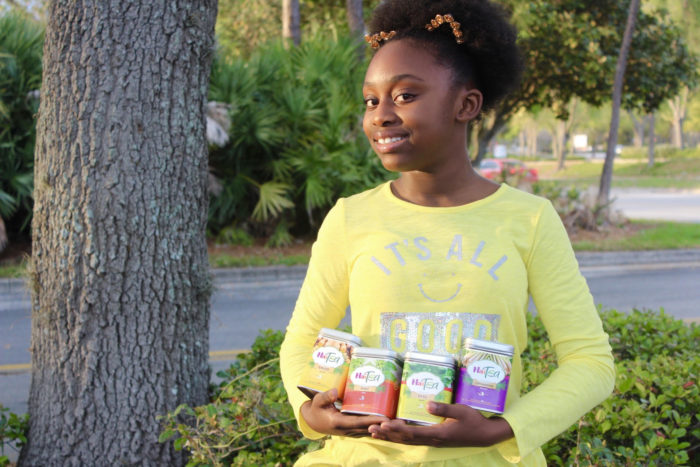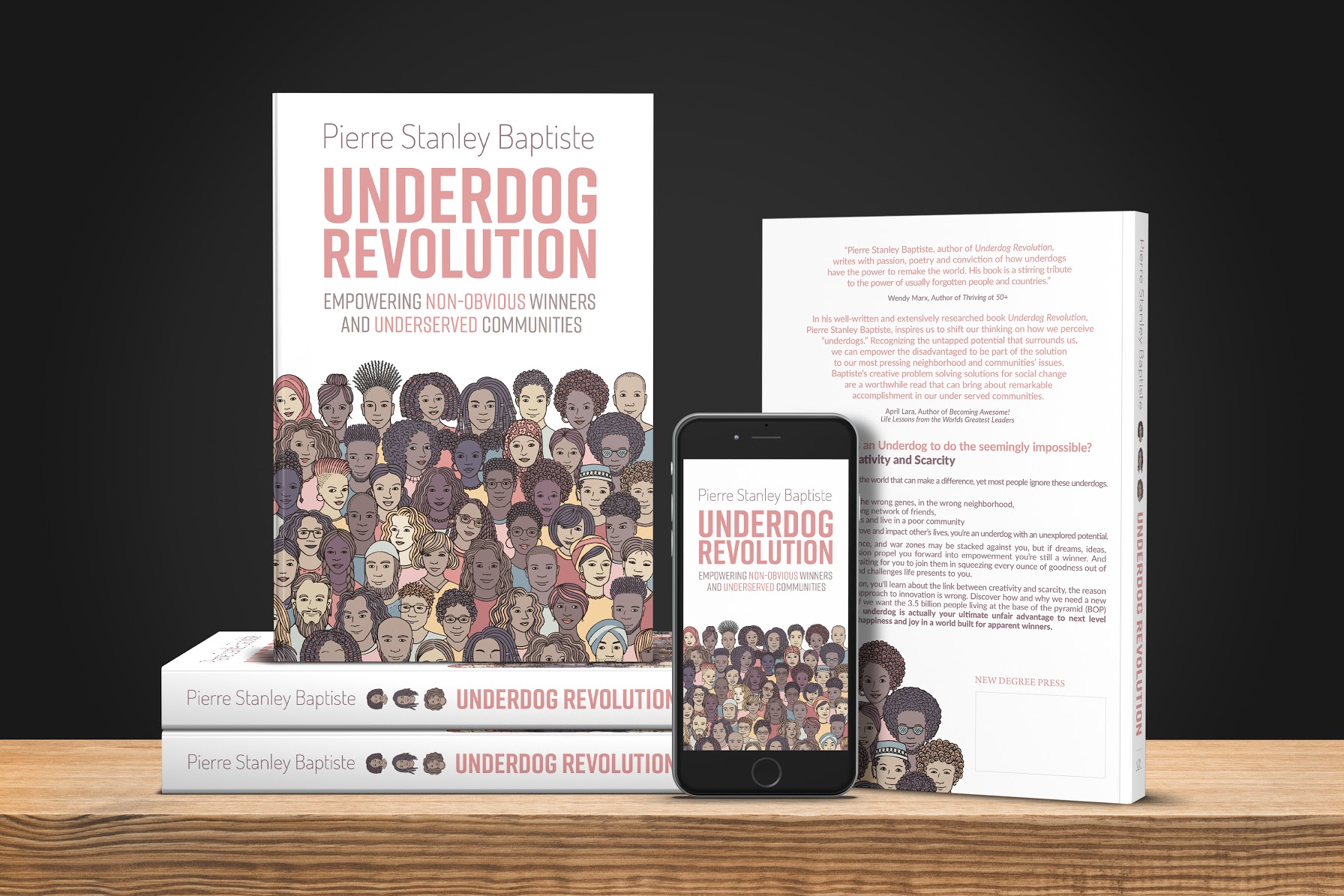
Pierre Stanley Baptiste, A Voice For Underdogs At The Bottom Of The Pyramid
2020 unexpectedly busted the door with a worldwide crisis. The most common question which crossed many people’s minds is: When will life goes back to normal? We all want to close our eyes and open them to a better world—a nightmare for many of us. Murder, protests, even looting in different places on the earth. Maybe, we fool ourselves every time we think the reality will be better. Improvement is not feasible until we put our hands together in rebuilding what needs to be rebuilt. Building or creating a better world does not necessarily mean having advanced infrastructure, but turn our focus on humanity, especially those at the bottom of the pyramid (BOP).
Pierre Stanley Baptiste is an advocate of the non-obvious, the people who don’t have a chance to show their talents, who don’t have a say on what matters or those who don’t have a spot at the table. His recently published book, indeed, is an opportunity to talk about those people. “Underdog Revolution: Empowering non-obvious winners and underserved communities” is a different point of view, a new way to see us and others, and it becomes more critical than ever before to explore this path because “in today’s world, innovation happens from the top, then spreads out to the bottom.” What if it is the wrong manner?
“Who are you?”. A question from people we must deal with, but our deeds can sometimes speak louder than a name. What story is behind this name, Pierre Stanley Baptiste? A moving one. Born in Pétion-Ville, Haiti. Raised by a lovely mother, Marie Ange Jules, a devoted teacher, more than twenty years in her life were dedicated to teaching. She is described poetically as “a woman who can drink pain and vomit, love and affection.” Stanley and his little sister grew up without a father figure. Their mother took over, did things that had to be done in an orderly fashion without excuses.
Among depression, lack of money, setbacks, Stanley has a story to tell. A story from a young man who used to take care of her sister. As he said: “I braided her hair, ironed her clothes, and managed our finances. This experience is one of the most excruciating torments of my life—a moment in history that should have left me broken, a flicker of darkness that wavered in my life but turned my sorrows and pains into strength”.
“My personal story is not a heroic one,” he said, but it is still inspiring. How could it not be when a child was not seen as the most intelligent in his classroom, spent his first year of kindergarten on the same first page of the reading book “Ti Malice” because he could not read? How could it not be when he was labeled as “slim, short, little mouse” by his fellows, even his peers?
However, from the bottom, he scored distinguished achievements in his life. There are a couple of bad references put on people but unattributable to winners, consciously or not. The main question is, why would someone be attributed to this kind of reference? “Because we’ve been unconsciously trained to associate achievers, and impact makers with a set of specific physical (height, color, body), intellectual (IQ, degree), and personality traits (charisma, confidence) that are easy to identify,” Stanley concluded.
Social issues underdogs have to face every day in their real life, and who are those people called “underdogs”? Then, they are more than 2.7 billion living on less than $2.50 a day and more than 700 million people, or 10 percent of the world population, who still live in extreme poverty, surviving on less than $1.90 a day (p.33). No access to social protection, don’t have a job which is able to guarantee a decent living to them, they are seen “as an individual or group with disadvantages, few resources or unfavorable circumstances, compared to another group or individual perceived as an apparent winner” (p.22). With social theories, speaking numbers, reports, and stories, the co-founder of Impact Hub Port-au-Prince tried to draft a decor that was dark and worrying admittedly, but worthy. It is a call to all of us to turn to people who are not “apparent-winners.”
“Underdog Revolution: Empowering non-obvious winners and underserved communities” contends three parts with twelve chapters. The first one, leveraging scarcity, explains why and how people take the winners’ side.
According to the social identity theory developed by Henri Tajfel, a Polish social psychologist, three psychological processes: social categorization, social comparison, and social identification, would help us understand why people are motivated to support the group boosts their self-esteem. Why we support underdogs or not? Perhaps to prevent others from judging us in an unfavorable light, the CORFing, or Cutting Off Reflected Failure approach. “According to Schadenfreude’s theory, people tend to enjoy a powerful individual’s or group’s demise. Maybe our sense of justice compels us to act, to balance the world, a psychological theory called distributive justice”, wrote Stanley on page 26. Support underdogs can be a conscious choice to build an equal world; A based on a utilitarian motivation.
The second part invites us to turn the pyramid upside down, which means seeing other’s potentialities that we often overlook. We also have to acknowledge some issues facing by these people such as famine – “students who come to school on empty stomachs cannot learn past 2 p.m.”, lack of resources.
We need to provide them with necessary tools such as technology and an environment that support education or business. For instance, registering a business takes at least ninety-seven days in Haiti, fighting against corruption, these are practical actions that we need to eradicate the term “Underdog.” If we do so, we will be able to enact the underdog revolution by unleashing innovation at the bottom of the pyramid.
In fact, we need to look around us, see what we have or don’t, fix problems with an efficient management system, and reward local innovators and leaders, as Stanley has suggested in the last part of his book. Is the author delusional by hoping a better world? “Above all, I have one specific goal in writing this conclusion: Leaping from facts to faith,” he stated.
Pierre Stanley Baptiste leaves an “Underdog manifesto” to the rest of the world based on a “Human-centered design,” a thinking process, and a creative approach to solving problems that put great emphasis on the human or people we seek to serve. In fact, passion, motivation, even talent, are not enough. We need resources with a new model of real empowerment. It is a long journey, but “let’s strive for the unthinkable.”

